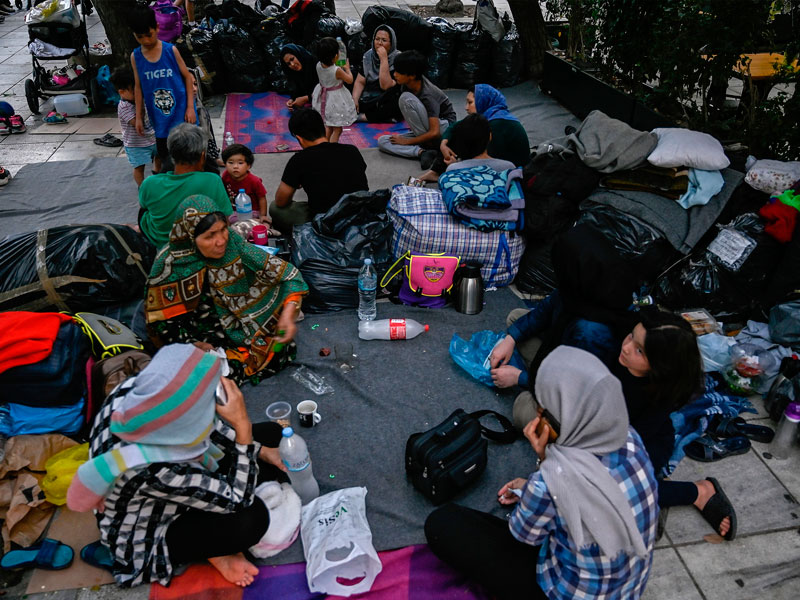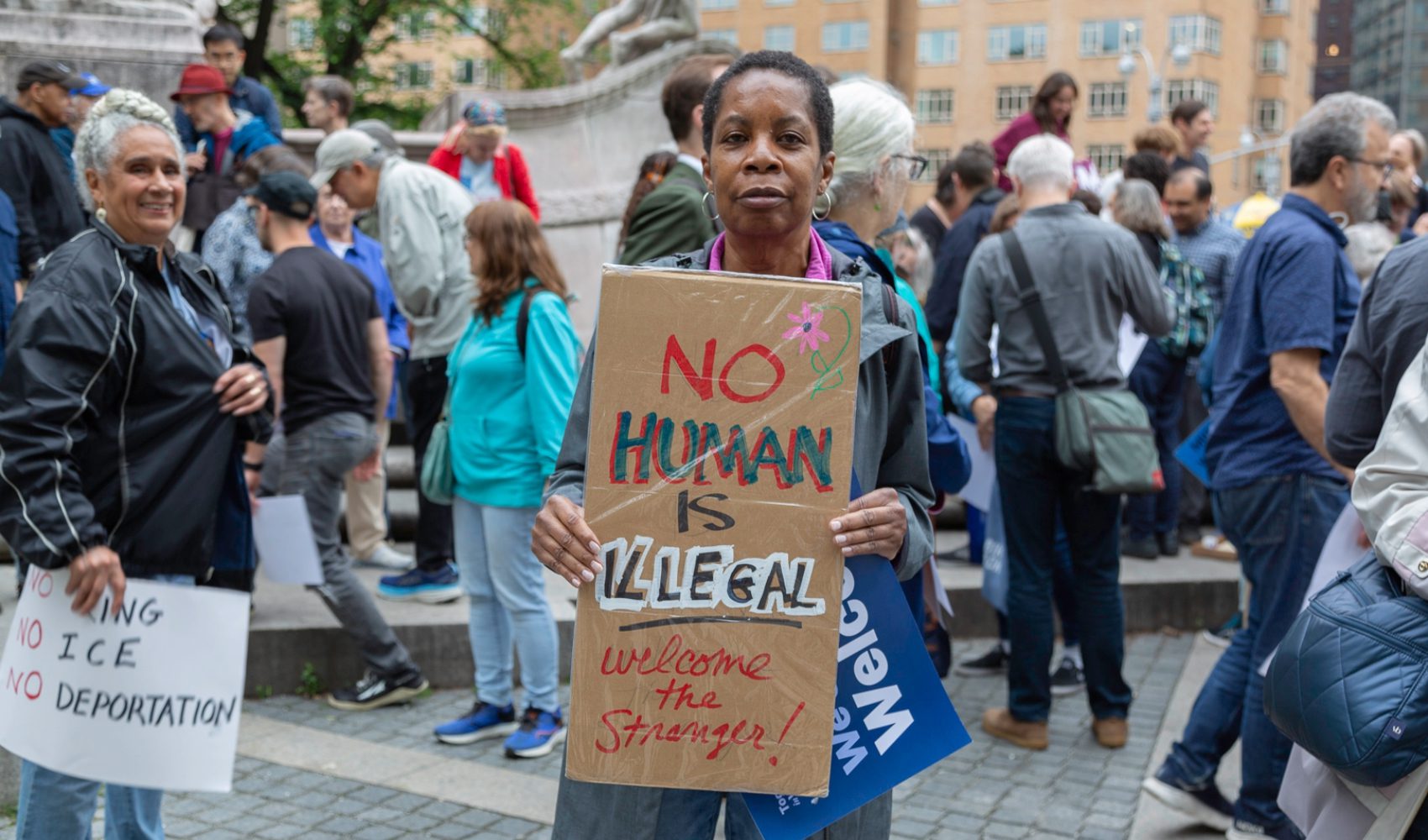Strict New Regulations Limit NGOs Helping Refugees in Greece
By Sharon Samber, HIAS.org
Aug 17, 2020

Around 100 mostly Afghan refugees camp out at a square in central Athens. The refugees were awarded asylum over a month ago and left Moria and other camps to come to Athens, but were not told where to go for assistance. July 2020.
(Louisa Gouliamaki/AFP via Getty Images)
When new regulations issued in Greece earlier this year suddenly hampered refugee agencies’ ability to help asylum seekers, the HIAS Greece legal team knew they had to fight back.
In April 2020, the Greek government published a new Joint Ministerial Decision that changed the regulatory framework governing non-profits that help refugees in Greece. The decision established onerous requirements for the registration and certification of NGOs doing migration work and are part of a broader effort to reduce support for asylum seekers in the country.
“The new regulations constitute an affront to the right to freedom of association in Greece and can be used to proscribe organizations voicing criticism against the migration policies of the state and advocating for the strengthening of refugee protection,” said Elli Kriona-Saranti, HIAS Greece’s managing attorney. “We knew that they couldn’t be left unchallenged.”
HIAS Greece promptly published a legal analysis of the newly adopted decision. The document concludes that the decision brings the activities and personnel of affected NGOs under strict state control and direction, which is likely to have a “chilling effect on civil society.” Moreover, the decision gives excessive discretionary powers to administrative authorities.
“This amounts to a disproportionate interference with the right to freedom of association,” HIAS Greece said in the analysis.
On July 2, the Expert Council on NGO Law of the Council of Europe confirmed HIAS Greece’s observations. In their opinion, the council suggested that the current provisions “give rise to the problem of compliance” with regard to respect for private life and freedom of association, enshrined in the European Convention on Human Rights.
The council’s opinion took issue with larger anti-immigration issues as well.
“These reforms should also be considered in the light of other human rights violations suffered by migrants, including reported push-backs of asylum seekers and migrants on the Greek-Turkish border, as well as wider legislative reforms in the domain of migration which appear to be part of a move to restrict irregular migration and access to asylum and increase the resort to migrant detention,” the opinion said.
The Expert Council recommended that the joint ministerial decision and the related legislative provisions be substantially revised in consultation with NGOs, in order to bring the legal framework in line with the European standards.
“We expect that the government will take into account the recommendations of the Expert Council and will amend the legislation accordingly,” said Vassilis Kerasiotis, HIAS Greece’s country director.
HIAS Greece has applied for the new registration as mandated by the new law and is actively monitoring the situation.


